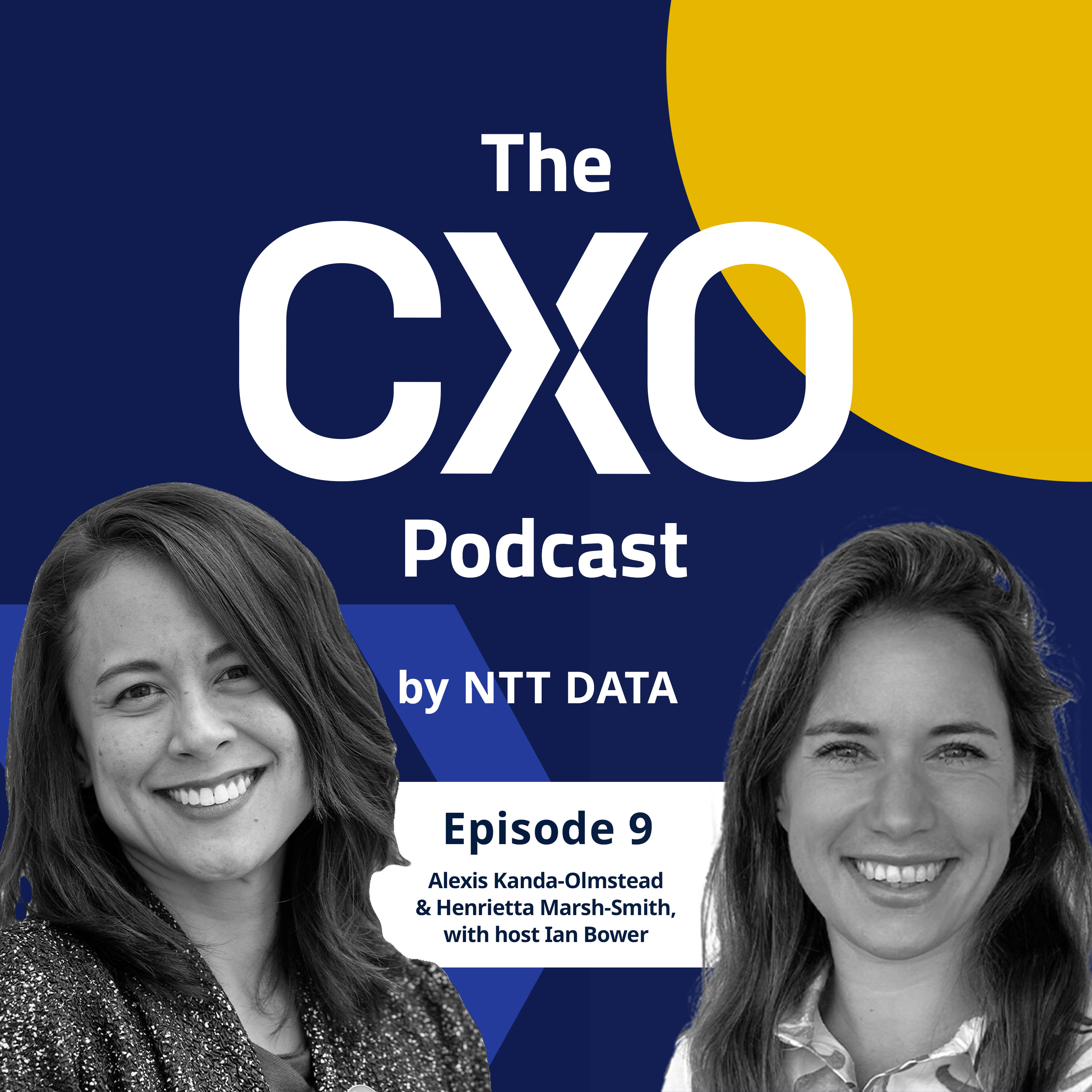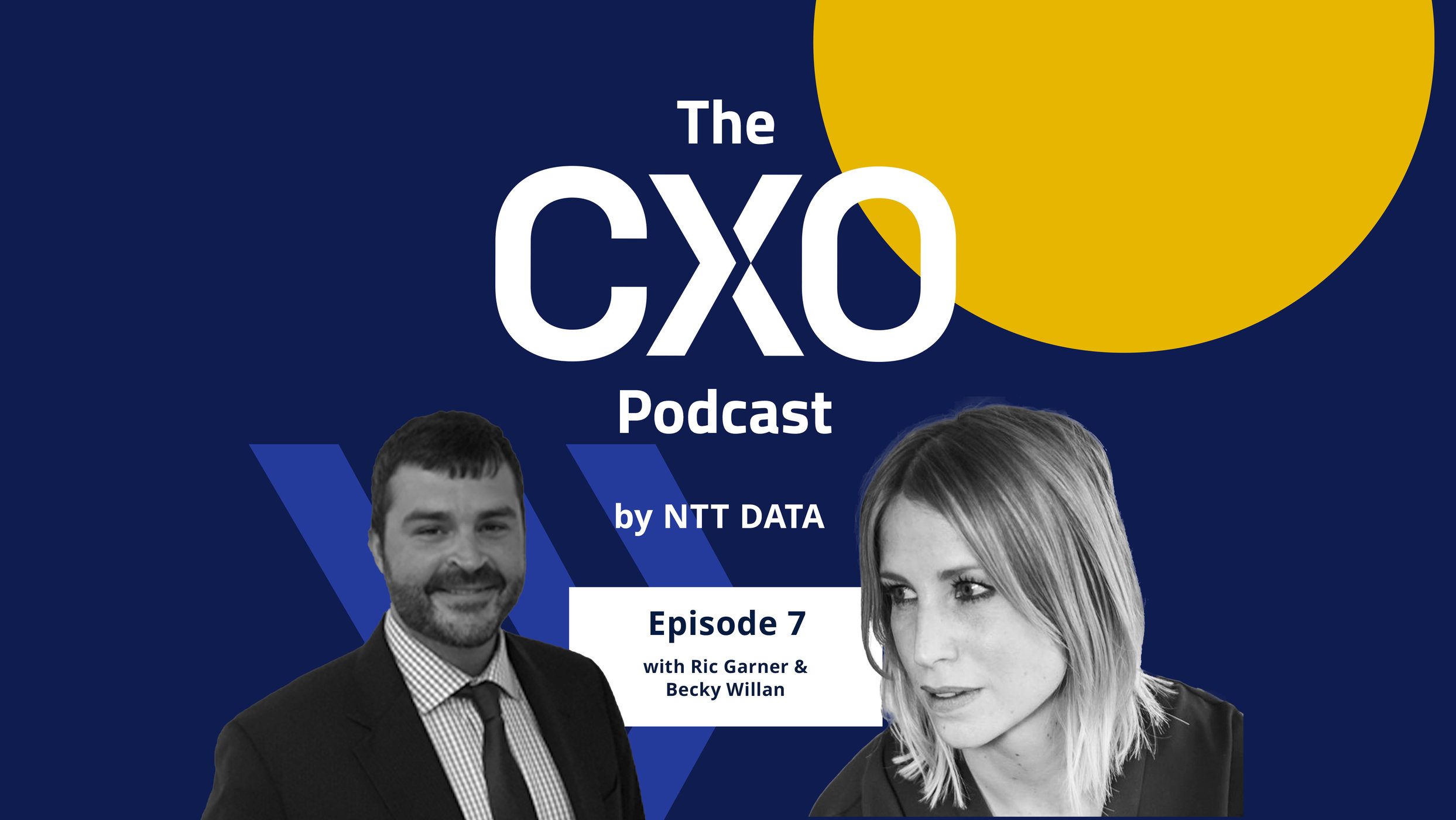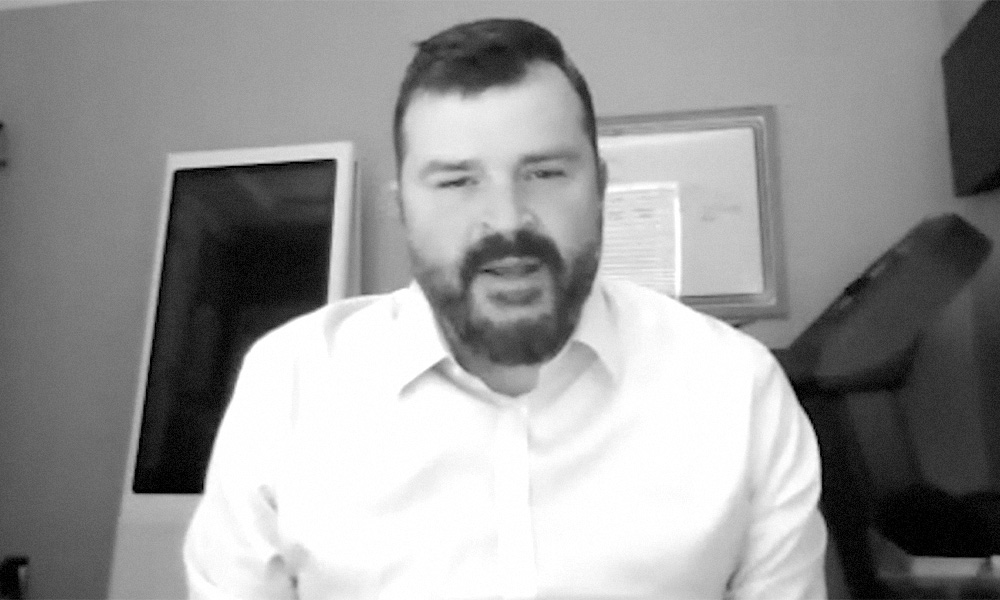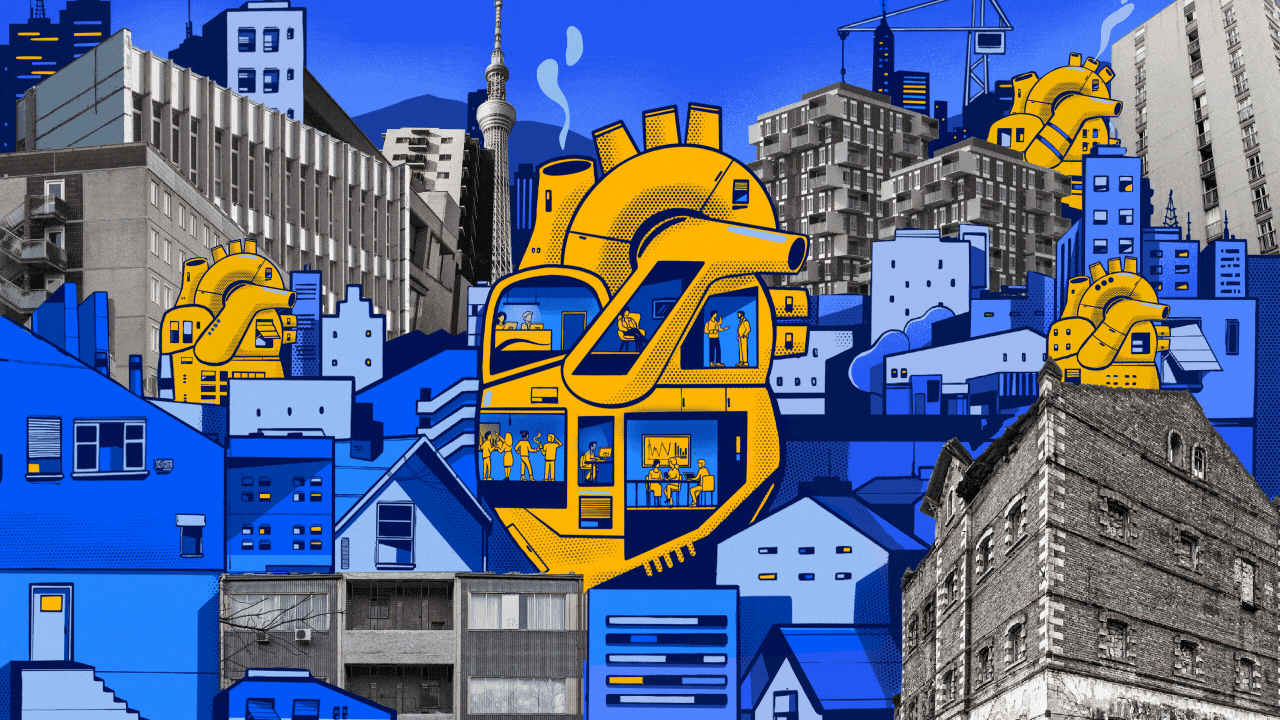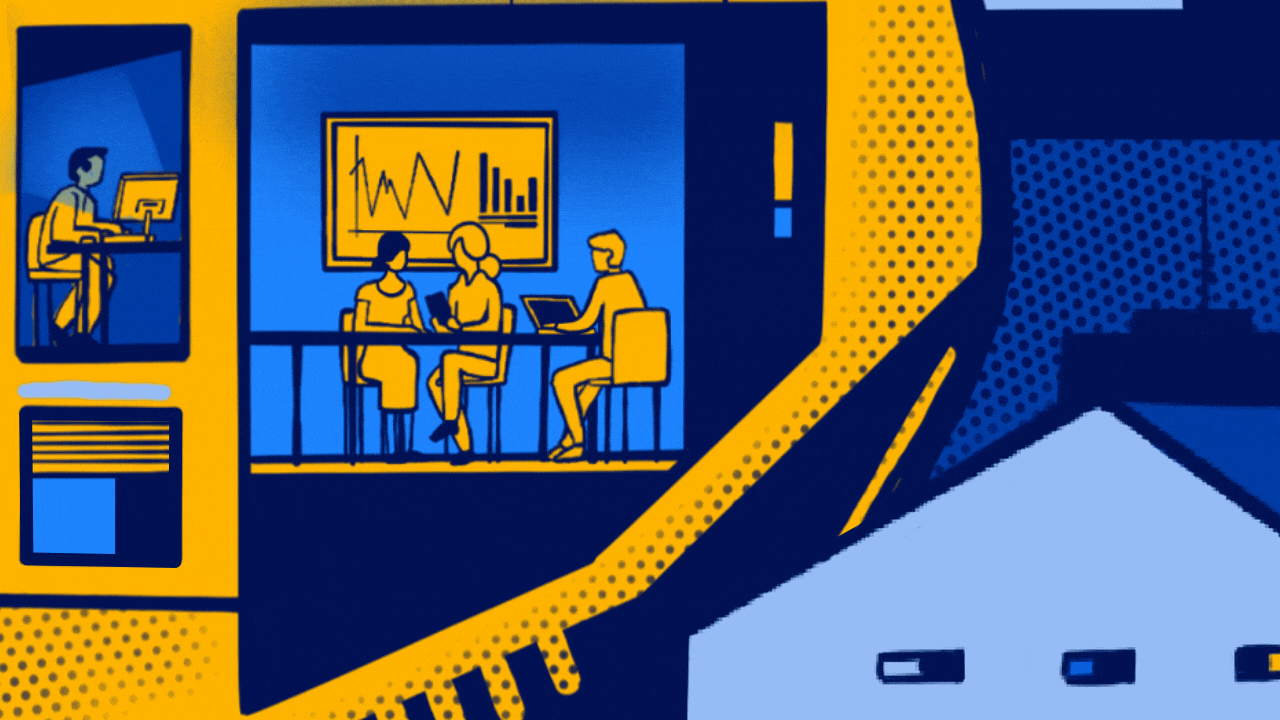46 results
New Leadership Skills for a Post-Pandemic Workforce
The post-pandemic workforce needs leaders who are adaptable, empathetic, digitally savvy, resilient and innovative. By developing these skills, leaders can help their organizations thrive in the face of uncertainty and change.
Post-Covid workplaceShaping cultureTalent managementTechnology, Talent and the Hidden Benefits of Taking the Road Less Traveled
As the tech industry continues to expand in both scope and reach, creating products that touch every part of our lives, the innovative potential and power of including more ‘outsider’ perspectives within the sector – and bringing in those from different industries and backgrounds entirely – should not be underestimated.
Diversity, equity & inclusionInnovationTalent managementTeam dynamicA Lesson in Workplace Learning
With job skills changing so rapidly and the increasing competition for talent, workplace learning plays a pivotal role in keeping organizations at the top of their game. By making L&D departments more agile and fluid and creating a learning-led company culture, organizations can always keep ahead of new competencies, and talent can be nurtured from within.
EducationL&DOperational agilityTalent managementNew Work: Is the Great Resignation Finally Making Us Think Differently?
Few companies have fully grasped the reality of today’s New Work challenges. The majority seem content to wait and see – but this complacency could mean the difference between moving ahead and lagging behind. There is a lot at stake, and to make a success of the new world of work leaders need to move on from technology and team leadership and focus on strategy at a higher level.
Hybrid workingShaping cultureStrategyTalent managementWorking practicesPeople Embody the Success of an Organization
Many businesses are struggling to make the right decisions about how to engage their people in this new, almost unrecognizable world of work. Employee engagement is down, reports of burnout are getting worse and worker satisfaction in many organizations is low. Now more than ever, success for any business lies in creating a culture that helps its people grow. But it’s one thing to say that you want to be people-centric, and another to create an environment where this ethos is upheld. In-depth feedback around employee perceptions ensures companies can walk the talk.
EXPost-Covid workplaceRecruitmentShaping cultureTalent managementThe Hybrid Office: A Work in Progress
As interactions between corporate teams reach the point where virtual is as effective as in-person, the very nature and purpose of the physical office has permanently changed. Hybrid working has proven productive for organizations and rewarding for individuals, and is here to stay. Rather than cling to the past, we must embrace the opportunities of this new post-pandemic business environment – and as such improve speed of decision-making, efficiency of operations and the wellbeing of the entire workforce.
EXHybrid workingOperational agilityPost-Covid workplaceTalent managementCreating Balance, Transforming Work, Empowering People
Covid has changed how people view their professional trajectories, as well as the way in which companies perceive their employees. Leaders now have the opportunity to experiment, testing hybrid work formulas in order to secure both the health of the company and of the individuals working within it. At the core is balance, fairness and inclusivity.
Employee wellbeingPost-Covid workplaceRecruitmentShaping cultureTalent managementTrustGen Z at Work: What Young Professionals Expect From Leaders
As we strive to make sense of the global changes around us and balance our working and personal lives, the expectations of leadership have changed too. As consumers, Gen Zs are particularly known to hold organizations to account, and they’re no different in their expectations for work.
EXHybrid workingPurposeSocial impactTalent managementMind the Gap: Addressing the Current Shortage of Digital Skills to Meet the Needs of the Future
The demand for digital skills is only accelerating as organizations embrace hybrid working. To meet the demands of the future workforce, training – for everyone, no matter where they are in their careers – is essential to ensure the digital skills gap does not hold your organization back.
Hybrid workingInnovationL&DTalent managementBuilding Gentelligent Cultures for the Future of Work
Within every organization today, there is an untapped source of advantage, one we all possess but almost no-one is using well: the potential of age diversity. Intergenerational collaborations tap into the different expertise that stems from growing up in different periods of history. To get away from the notion that teams made up of multiple generations will suffer from miscommunication and conflict, leaders must create organizational cultures where generational differences are reframed as a source of strength and opportunity.
Diversity, equity & inclusionL&DShaping cultureTalent managementTeam dynamicHow Automation Will Unlock the Next Level of Human Performance
When so much is changing in our day-to-day personal and professional lives, organizations need to make sure they are adjusting to the new demands of work whilst being sensitive and supportive of their workers. Automation allows employees to engage in creative, exciting, rewarding endeavors that lead to elevated career and personal satisfaction – as well as delivering efficiencies for the business.
AutomationEmployee wellbeingL&DShaping cultureTalent managementWorking practicesResponsible Freedom: Creating the Connected Future Workplace
The pandemic forced businesses and organizations to abandon the physical office and adopt remote working. But with Covid now seemingly behind us, and hybrid practices well-established, is there a danger that without face-to-face interaction, organizations will lose the very thing that keeps them connected?
Hybrid workingPost-Covid workplaceShaping cultureStrategyTalent managementEssential Skills in a Digital Future
Digitally enabled collaboration through hybrid working models now seems critical to all our futures. The question is, are you ready? Alongside technological advances, your employees will need new skills and capabilities to thrive.
EXHybrid workingL&DPost-Covid workplaceTalent managementTrust: The New Currency of Business
In a world where skepticism and misinformation have now become the default, trust has become the new currency for business. And those companies that know how to spend it well can create a competitive advantage by making sure that their actions speak louder than words.
PurposeSecurityShaping cultureStrategyTalent managementTrustGender Equality – The New Leadership Advantage
In today’s fast-changing markets, where adaptability is key to success, traditional leadership thinking is too rigid to effectively respond to unexpected events. What’s needed instead at a senior level is a vibrant mix of thought and opinions that can deliver creative solutions to unexpected events. This means that organizations with greater gender balance at the highest level are much better equipped to remain competitive.
Diversity, equity & inclusionEXOrganisational designShaping cultureStrategyTalent managementWorking practicesSmart Learning: The Positive Effects of Digital Training on EX
Many things are shaking up the labour market at the moment, with added pressure to stem the flow of the ‘great resignation’. In our current context, employee experience (EX) is more important than ever. Here’s how organisations can use digital training and smart learning to keep employees happy.
EXHybrid workingTalent managementWorking practicesHow RPA Bots Help Chatbots Get Smarter
Imagine if process automation was a matter of simply typing what you want. Well, this just became a reality. At a recent hackathon, an NTT DATA team demonstrated an innovative approach that integrates RPA bots and chatbots. The result was a tool that freed users from time-consuming, repetitive tasks, allowing them to focus on adding value while using natural conversation capabilities.
AutomationBreakthrough technologiesOperational excellenceTalent managementAn Intelligent Organisation Starts and Ends With People
Nature shows the way: those who adapt, survive. This also applies to organisations, especially against the background of enormous challenges, such as accelerated technological evolution, pandemics and climate change. To achieve this, organisations must leave behind linear-hierarchical structures and move towards networked-intelligent ones. But how can this be achieved?
Organisational designStrategyTalent managementTeam dynamicThe Beating Heart of Sustainability: People
The world is online, working remotely, clocking long hours from unusual locations. It’s important to remember that the workers that sit behind the screens and keyboards are people, and they need more than just another KPI to keep them connected and engaged
Employee wellbeingEXHybrid workingTalent managementAchieving Sustainable Growth By Attracting Young Talent
Worldwide retention of top talent has been an organisational issue for some time now. The recent ‘turnover tsunami’ headlines show us the problem isn’t getting better. Here’s how NTT DATA Business Solutions Turkey, Middle East and North Africa have managed to retain 97% of new employees in the last five years.
EXPost-Covid workplaceRecruitmentTalent managementSustainability Within Organisations: The Shift from AOB to Business Critical
The next generation have not only grown up as digital natives but as truly global citizens, connected like never before to people and events all over the world. Threats to our very survival, as well as an equitable and prosperous future, are felt more sharply by Generation Z than any others before them. Protect their future – and in the process, your organisation’s future too.
ESGPurposeRecruitmentTalent managementWhite Paper: Shaping the change
There are a number of reasons for the pressure to change that many companies are feeling: economic globalisation, unforeseen crises, the rising complexity of business processes, and digitalisation at all levels to name a few. Companies are responding with new structures and processes. In doing so, management has to rely heavily on HR, because every positive change is built on the willingness and skillsets of employees. HR shapes extensive aspects of change and HR managers, therefore, are increasingly becoming change managers – and have to stand the test of this new role.
Operational agilityShaping cultureTalent managementWhitepaperWorking Without Boundaries and the Enterprise of Tomorrow
Agile organisations are defined by how closely they’ve looked at costs, technology and digital innovation and leveraged these to survive in times of uncertainty. Learning from this approach, businesses can reap the benefits of cultural flexibility, process agility, and operational adaptability – allowing employees to work without boundaries while still achieving benchmarks of productivity.
Hybrid workingOperational agilityTalent managementWorking practicesThe Surprisingly Simple Formula for Smart Working
As we enter a new era of work, three key elements can help employee and employer alike respond favourably to the shift: communication, learning and a reimagined workplace. Taken together, these elements offer a model for truly smart working.
EXHybrid workingPost-Covid workplaceTalent managementIn a World in Flux, You Need a Flux Mindset
In today’s world in flux, traditional change management is insufficient. Enterprise agility, operational adaptability, cultural flexibility and organisational fluidity all fundamentally depend on a new way of thinking about and relating to change, period. Welcome to a Flux Mindset: an essential tool for leadership, robust organisational culture and thriving talent from here on out.
Employee wellbeingShaping cultureStrategyTalent managementLearning to Transform: How Collaboration and Care Help Us Deal With Change
Learning is a critical part of an organisation’s ability to transform. The steep learning curve on cloud native migrations offers a useful lens through which to understand how we can improve both training and ways of working, in order to create an agile and future-fit organisation.
Breakthrough technologiesOperational agilityTalent managementTeam dynamicGartner Innovation Case Study Spotlight: A Look Inside NTT DATA’s Commitment to Innovation
Everyone seems to have a different formula for innovation success. Recently, NTT DATA Corporation’s Senior VP and Head of Technology and Innovation, Hiroshi Tomiyasu, had the chance to discuss the approach that NTT DATA takes, when interviewed by Gartner for its Innovation Case Study Spotlight Series. Our three go-to ingredients for success are prioritisation based on customer needs, foster the right culture, and nurturing talent. What’s your formula?
InnovationShaping cultureTalent managementWhite Paper: Building a High-Performance Culture
This paper investigates how to build a high-performing company culture through purpose, meaning and entrepreneurship.
PurposeTalent managementTeam dynamicWhitepaperWhite Paper: Re-Energising Employees to Thrive in a Changing Business
The white paper examines some of the key challenges facing organisations as the digital revolution gathers pace. By understanding the new disruptive environment and connecting people across (and beyond) the workforce, organisations can become more motivated, inventive, adaptable and quick to respond.
EXTalent managementTeam dynamicWhitepaperWorking practicesThe Question on Every Prospective Employee’s Lips: “What’s Your Purpose?”
The dynamic between employee and employer has shifted. People are now more selective about who they work for, placing greater importance on purpose and culture. To attract and retain talent, organisations need to be clear about why they exist, and live those values in everything they do.
EXPurposeRecruitmentTalent managementTransformation: The Power of Vision in Times of Change
Embarking on continuous transformation is one of the most significant decisions a CEO has to make, but 2020 has taught us that we must prepare for the unexpected. Vision, ambition, commitment and conviction will be required of not only the leadership team, but everyone in the organisation.
Operational agilityShaping cultureStrategyTalent managementThe Mobilised Organisation: Building Power through People for a Resilient, Innovative and High Performing Organisation
When discussing employee culture, much focus has been put on agility, or the ability to respond to change. But to remain relevant and competitive, organisations must also consciously lead the change. In this way, there is much leadership teams can learn from social change movements, where authentic purpose, a belief in people power and the removal of barriers to participation mean that grassroots mobilisation can have real impact.
Diversity, equity & inclusionEmployee wellbeingTalent managementTeam dynamicThe Kind of Culture Employees Love
Notoriously hard to define as culture is, now the rules have also changed on how organisations build it. Perks that provide short-term satisfaction won’t cut it and the corporate loyalty of our grandparents hasn’t stuck the generations. To thrive, organisations need to define their culture beyond the free lunches and casual Fridays and learn to utilise culture as a business tool.
EXShaping cultureTalent managementWorking practicesThe Big Four of Making Culture Visible: Actions, Rituals, Symbols and Stories
Cultures are constructed as the collective expression of the group social and psychological needs. Utilising theories of social dynamics when deliberately building organisational culture can make visible what is often intangible.
Employee wellbeingShaping cultureStrategyTalent managementReimagining Work – with Automation on Your Team
How can we design the right environment for businesses to get the most from automation, so that current and future employees can focus on the human aspects of value creation?
AutomationOrganisational designTalent managementWorking practicesPeople Investment is the True Workplace Capital of the Future
How can a business’s core people function bring employees together when a global pandemic is keeping them apart? Culture is more important than ever to ensure that your people know they are valued, and to maintain a healthy and thriving internal community.
Employee wellbeingShaping cultureTalent management
